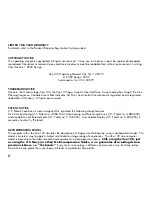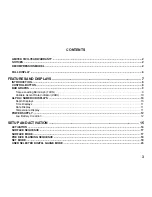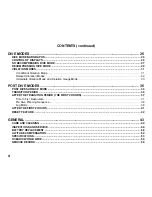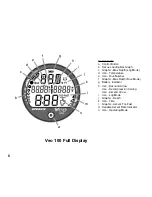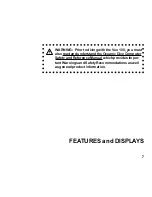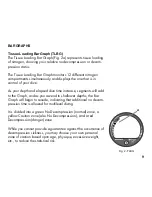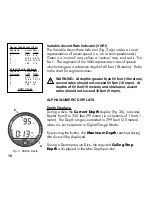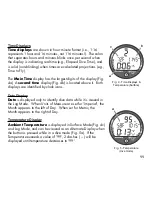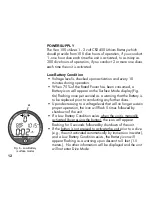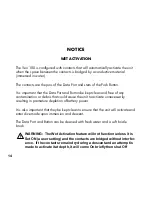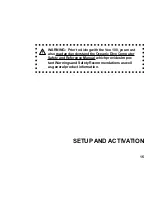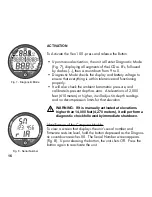
2
LIMITED TWO-YEAR WARRANTY
For details, refer to the Product Warranty Registration Card provided.
COPYRIGHT NOTICE
This operating manual is copyrighted, all rights are reserved. It may not, in whole or in part, be copied, photocopied,
reproduced, translated, or reduced to any electronic medium or machine readable form without prior consent in writing
from Oceanic / 2002 Design.
Veo 100 Operating Manual, Doc. No. 12-2373
© 2002 Design 2002
San Leandro, Ca. USA 94577
TRADEMARK NOTICE
Oceanic, the Oceanic logo, Veo 100, the Veo 100 logo, Graphic Diver Interface, Tissue Loading Bar Graph, Pre Dive
Planning Sequence, Variable Ascent Rate Indicator, Set Point, and Control Console are all registered and unregistered
trademarks of Oceanic. All rights are reserved.
PATENT NOTICE
U.S. Patents have been issued, or applied for, to protect the following design features:
Dive Time Remaining (U.S. Patent no. 4,586,136), Data Sensing and Processing Device (U.S. Patent no. 4,882,678),
and Variable Ascent Rate Indicator (U.S. Patent no. 5,156,055). User Setable Display (U.S. Patent no. 5,845,235) is
owned by Suunto Oy (Finland).
DECOMPRESSION MODEL
The program within the Veo 100 simulates the absorption of nitrogen into the body by using a mathematical model. This
model is merely a way to apply a limited set of data to a large range of experiences. The Veo 100 dive computer
model is based upon the latest research and experiments in decompression theory.
Still, using the Veo 100, just
as using the U.S. Navy (or other) No Decompression Tables, is no guarantee of avoiding decom-
pression sickness, i.e. “the bends.”
Every diver’s physiology is different, and can even vary from day to day.
No machine can predict how your body will react to a particular dive profile.


